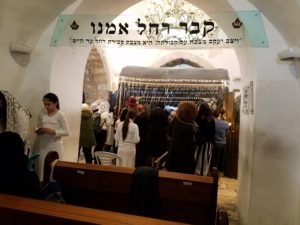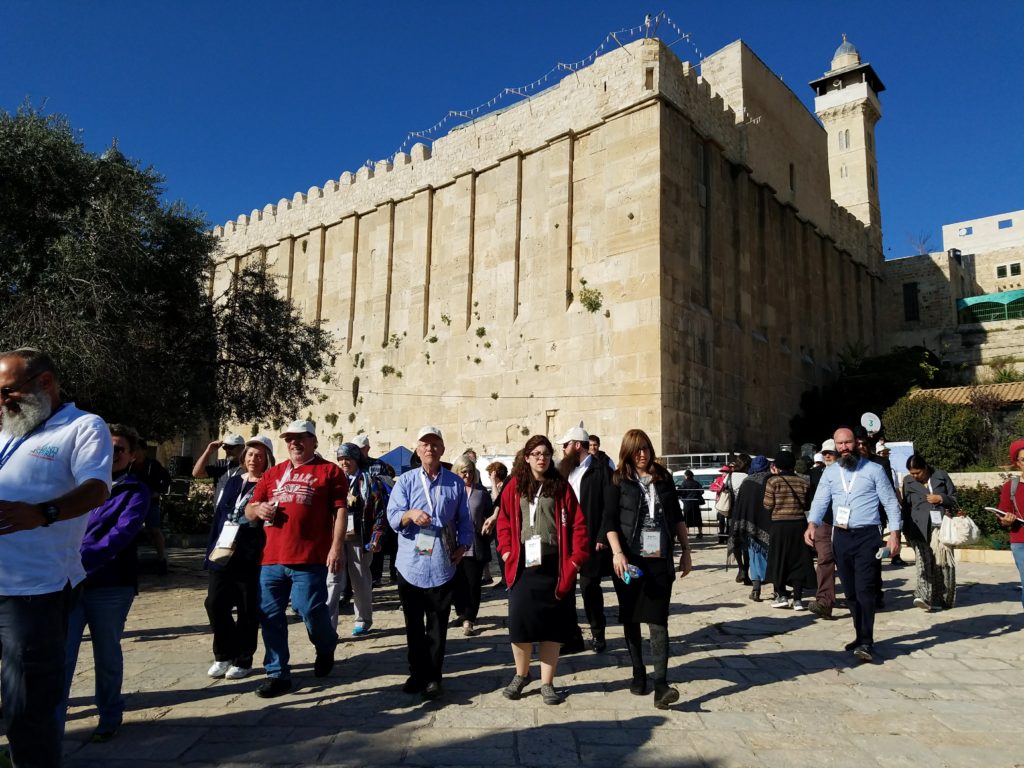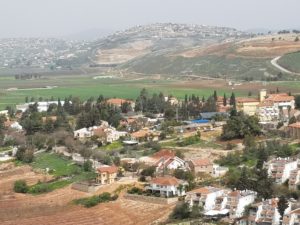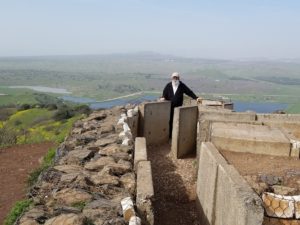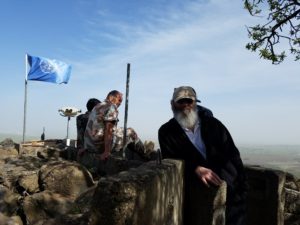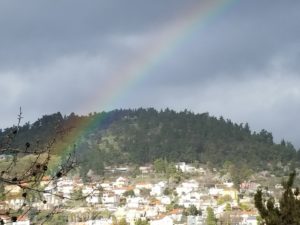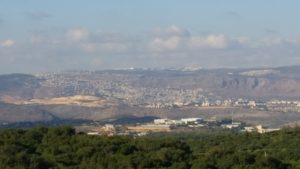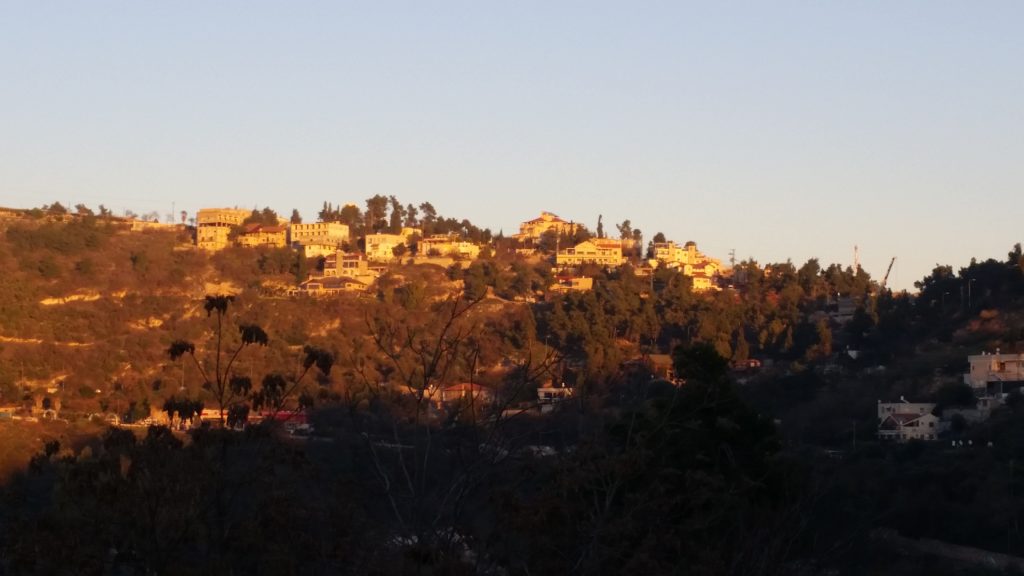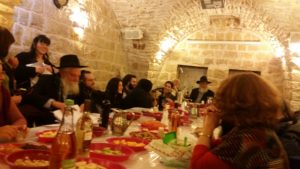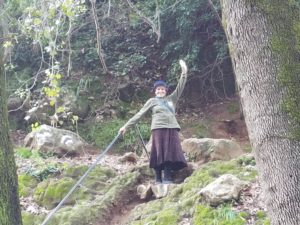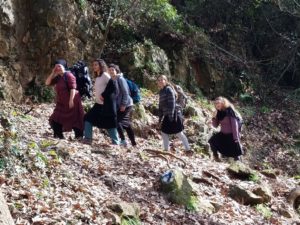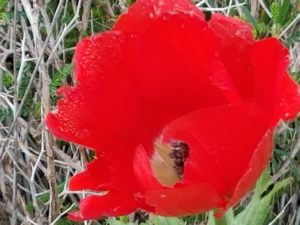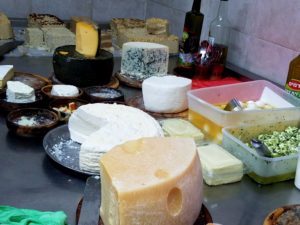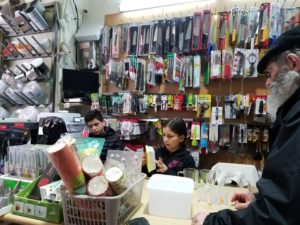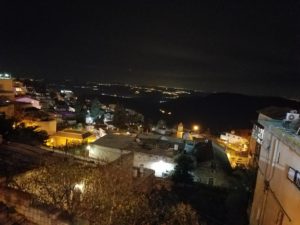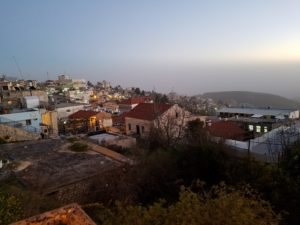
One of the most difficult things in moving to another country is discontinuity, setting on a new course, as opposed to the comfortable and familiar old one. Especially moving to Tzfat, which is not just a different country, but a different dimension. But quite a few times we experienced here mysterious ways of previous connections becoming new again.One such episode occurred last Shabbos.We were invited for a Friday night meal to Judy – a pottery artist, who also single-handedly transformed the town since the the last 8 years she has been here, by organizing “Bas Medrash” – learning place for English-speaking women who wanted to learn Torah.She had 12 guests, from US, Canada, Australia, England, and Israel, most living in Tzfat, but also a couple of Judy’s friends who came to visit from Beit Shemesh. There was a lot of delicious food, and animated Divrei Torah. In the middle of the meal electricity went out, but nobody seemed to be concerned, commenting that ” it’s just Tzfat…” Somebody suggested to put tin foil behind the candles, and Judy did that. “Great, now we can see the tin foil” – another guest said, to everybody’s laughter. Eventually our eyes got used to darkness, slightly illuminated by the candles, and the dinner continued, with new courses of food and more interesting conversation. Eber noticed that the guest from Beit Shemesh, a man in Hasidic attire and long white beard, mentioned growing up in Montreal, so when the dinner was over and we were ready to leave – still in darkness – Eber asked him, if he heard of Old Orchard Beach (closest beach to Montreal.) The guest was surprised to hear this, and said that yes, he used to come to OOB every summer as a child and his cousin used to own the “Waves” motel. “We are cousins!” Eber said. “Your father used to own a ribbon factory in Montreal, right?” He mentioned other things about the family. The “cousin” was shocked. “That’s too much” he said – “It’s not possible! I have to go and lie down…” But then we stayed longer with “cousins” reminiscing about the family and old times…The only regret Eber had is that he could not call his mother to say: “Mom, you won’t believe this one…”

